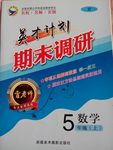题目内容
When I was 12, all I wanted was a signet (图章) ring. They were the "in" thing and it seemed every girl except me had one. On my 13th birthday, my Mum gave me a signet ring with my initials(姓名首字母) carved into it. I was in heaven.
What made it even more special was that it was about the only thing that wasn't being "replaced". We'd been burnt out in fires that swept through our area earlier that year and had lost everything—so most of the " new" stuff (东西) we got was really just to replace what we'd lost. But not my ring. My ring was new.
Then, only one month later, I lost it. I took it off before bed and it was missing in the morning. I was sad and searched everywhere for it. But it seemed to have disappeared. Eventually, I gave up and stopped looking for it. And two years later, we sold the house and moved away.
Years passed, and a couple of moves later, I was visiting my parents' when Mum told me that she had something for me. It wasn't my birthday, nor was it Easter or Christmas or any other gift-giving occasion. Mum noticed my questioning look. " You'll recognize this one," she said, smiling.
Then she handed me a small ring box. I took it from her and opened it to find my beautiful signet ring inside. The family who had bought our house 13 years earlier had recently decided to do some redecorations, which included replacing the carpets. When they pulled the carpet up in my old bedroom, they found the ring. As it had my initials carved into it, they realized who owned the ring. They'd had it professionally cleaned up by a jeweler before sending it to my mother. And it still fits me.
56. The underlined word "in" in the first paragraph probably means "_____".
A. fashionable B. available C. practical D. renewable
57. When she got the ring back, the writer was about _____.
A. 13 years old B. 15 years old C. 26 years old D. 28 years old
58. Which of the following is TRUE according to the passage?
A. The writer's family moved several times.
B. The writer never stopped looking for her ring.
C. The writer's ring was cleaned up by the new house owner.
D. The writer lost her ring in the morning when she took it off.
59. What would be the best title for the passage?
A. My New Ring B. Lost and Found C. Lost and Replaced D. An Expensive Ring
【语篇解读】本文是一篇记叙文。表述情节:我13岁生日时得到一枚署名戒指,然后不久不慎失落,尽管努力寻找却未得,在搬家之后多年,被买家意外发现,最终我失而复得这枚戒指。
【解析】
56. A. 词义猜测题。难度:难。旧词新意。根据题干,定位第一段句首:When I was 12, all I wanted was a signet(图章) ring. They were the "in" thing and it seemed every girl except me had one. 可知:我梦寐以求一枚署名戒指是因为似乎每个小姑娘都有一枚这样的戒指。in, adj. 在里面的;时髦的。与A. fashionable同义。
57. D。细节理解题。难度:偏易。由第一段得知,13岁生日得到戒指。第三段最后一句话:And two years later, we sold the house and moved away。第五段第三、四句:The family who had bought our house 13 years earlier had recently decided to do some redecorations, which included replacing the carpets. When they pulled the carpet up in my old bedroom, they found the ring。可知15岁时搬家,13年后戒指失而复得,这年应该28岁。
58. A。细节判断题。难度:中。由第三段可知:15岁那年,作者一家搬家了。在第四段段首:Years passed, and a couple of moves later,可知,在这些年中他们又搬过几次家。A正确。
59. B。主旨大意题。难度:中。全文描述了一枚失落15年的戒指重新回到主人手中。
干扰项排除: 文章第二段首句:What made it even more special was that it was about the only thing that wasn't being "replaced".可见:这枚戒指不可替代。故排除C. Lost and Replaced。最后一句:“My ring was new.”但时隔多年,第五段最后第二句:They'd had it professionally cleaned up by a jeweler before sending it to my mother.对方请专业的珠宝商对这枚戒指进行了处理,说明它已经不新了。故排除A. My New Ring。文章未曾谈及戒指的价格,故排除D. An Expensive Ring。

 名师点拨卷系列答案
名师点拨卷系列答案 英才计划期末调研系列答案
英才计划期末调研系列答案完形(15%)
Albert Einstein said, “In the middle of every difficulty lies opportunity.” Once __41 __, such opportunities are like valuable diamonds hidden in the sand.
Several years ago, I spoke at a school about how we were surrounded by “___42___ ” if we could only recognize them. A man stopped by to see me, and I remembered him as somebody who had suffered through a(n) ___43___ divorce (离婚) and was examining what was most important to him. He took a small ___44___ out of his pocket. Here is what he said to me that day.
“I ___45___ on this stone when I was leaving church last Sunday. You had spoken about ___46___ opportunities—diamonds. I put the stone in my ___47___ to remind me to look for those “diamonds” that I need. I have been trying to sell my business . On Monday morning, a man w ho seemed interested in ___48___ some of my stock (股票) stopped by. I thought, ‘Here’s my diamond—don’t let it ___49___!’ I sold the entire stock to him by noon. Now my next diamond is to find a new ___50___ !”
ho seemed interested in ___48___ some of my stock (股票) stopped by. I thought, ‘Here’s my diamond—don’t let it ___49___!’ I sold the entire stock to him by noon. Now my next diamond is to find a new ___50___ !”
Not long afterward, he did find a new an d better job. From then on, he decided to keep his stone with him all the time as a ___51___ to look for “diamonds” as he dug through the ___52___ of life.
d better job. From then on, he decided to keep his stone with him all the time as a ___51___ to look for “diamonds” as he dug through the ___52___ of life.
Richard DeVos is right when he points out. “This is an exciting world. It is filled with opportunities. Great moments wait around every corner.” Those moments are diamonds that, ___53___ left unrecognized, will be forever lost.
Are you looking for “diamonds” every day? If not, you may ___54___ pass them by! Perhaps there is a diamond of opportunity hidden in the difficulty you’re ___55___ now.
| 【小题1】 |
|
| 【小题2】 |
|
| 【小题3】 |
|
| 【小题4】 |
|
| 【小题5】 |
|
| 【小题6】 |
|
| 【小题7】 |
|
| 【小题8】 |
|
| 【小题9】 |
|
| 【小题10】 |
|
| 【小题11】 |
|
| 【小题12】 |
|
| 【小题13】 |
|
| 【小题14】 |
|
| 【小题15】 |
|
完形填空 (共20小题;每小题1分,满分20分)
请认真阅读下面短文,从短文后各题所给的A、B、C、D四个选项中,选出最佳选项,并在答题卡上将该项涂黑。
We often talk about ourselves as if we have permanent genetic defects (缺陷) that can never be changed. “I’m impatient.” “I’m always behind.” “I always put things 31 !” You’ve surely heard them. Maybe you’ve used them to describe 32 .
These comments may come from stories about us that have been 33 for years—often from 34 childhood. These stories may have no 35 in fact. But they can set low expectations for us. As a child, my mother said to me, “Marshall, you have no mechanical skills, and you will never have any mechanical skills for the rest of your life.” How did these expectations 36 my development? I was never 37 to work on cars or be around 38 . When I was 18, I took the US Army’s Mechanical Aptitude Test. My scores were in the bottom for the entire nation!
Six years later, 39 , I was at California University, working on my doctor’s degree. One of my professors, Dr. Bob Tannbaum, asked me to write down things I did well and things I couldn’t do. On the positive side, I 40 down, “research, writing, analysis, and speaking.” On the 41 side, I wrote, “I have no mechanical skills.”
Bob asked me how I knew I had no mechanical skills. I explained my life 42 and told him about my 43 performance on the Army test. Bob then asked, “ 44 is it that you can solve 45 mathematical problems, but you can’t solve simple mechanical problems?”
Suddenly I realized that I didn’t 46 from some sort of genetic defect. I was just living out expectations that I had chosen to 47 . At that point, it wasn’t just my family and friends who had been 48 my belief that I was mechanically hopeless. And it wasn’t just the Army test, either. I was the one who kept telling myself, “You can’t do this!” I realized that as long as I kept saying that, it was going to remain true. 49 , if we don’t treat ourselves as if we have incurable genetic defects, we can do well in almost 50 we choose.
| 【小题1】 |
|
| 【小题2】 |
|
| 【小题3】 |
|
| 【小题4】 |
|
| 【小题5】 |
|
| 【小题6】 |
|
| 【小题7】 |
|
| 【小题8】 |
|
| 【小题9】 |
|
| 【小题10】 |
|
| 【小题11】 |
|
| 【小题12】 |
|
| 【小题13】 |
|
| 【小题14】 |
|
| 【小题15】 |
|
| 【小题16】 |
|
| 【小题17】 |
|
| 【小题18】 |
|
| 【小题19】 |
|
| 【小题20】 |
|
 reaking
reaking